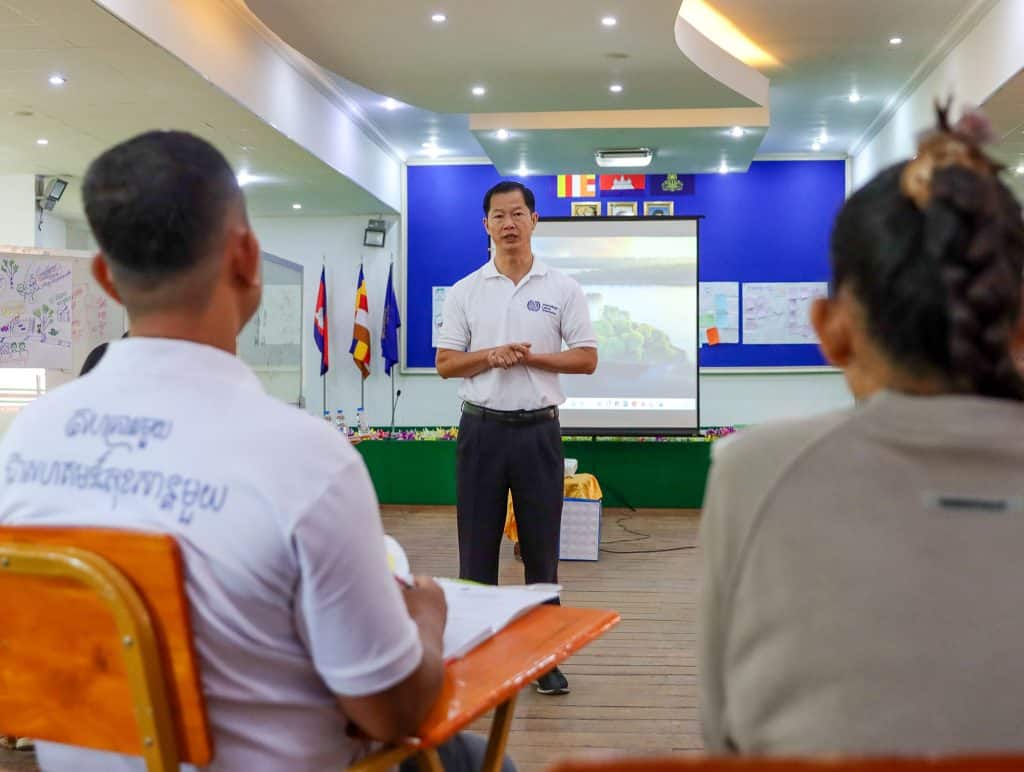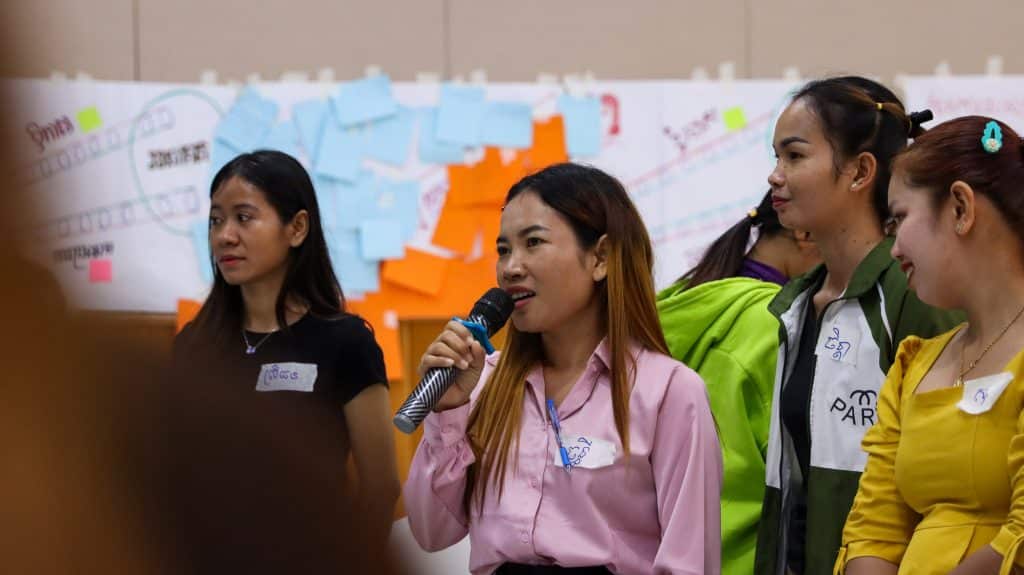In a warm, sunlit training room in Kompong Speu, Cambodia, laughter and discussions intertwined as 56 factories employees—including workers and management—gathered with the goal of creating a more equitable workplace. Facilitated by Mr. Kuyhang Heng, a former factory packer turned Better Factories Cambodia (BFC) Enterprise Advisor, the Male and Female Leadership Training programme reimagines workplace power dynamics by weaving equity into every session —from small-group discussions to large plenaries —empowering participants to transform bias into inclusion. The group is also evenly divided, with 28 male and 28 female participants.

Kuyhang’s own path mirrors this transformation. He began in 1996 as a packer in a factory in Phnom Penh, worked his way up to sewing supervisor, leading by gut instinct—until gender-related training opened his eyes to the hidden barriers women face on the factory floor. In 2011, he joined Better Factories Cambodia with a mission: to address the very inequities he once overlooked. “I realized that while women made up 80 percent of the workforce, few held decision-making roles,” he reflects.
Creating safe spaces for dialogue
The programme unfolds in two phases. In gender-specific groups, participants name workplace challenges—micro-aggressions, overlooked promotions, uneven workloads—and explore how societal norms shape their daily interactions. Female participants learn strategies to express their needs, while men examine how unconscious biases limit team potential. Once trust is built, mixed-gender sessions empower all participants to practice inclusive decision-making, role-play difficult conversations, and co-create action plans for their factories.
Pre- and post-training surveys reveal remarkable shifts: 90 percent of participants report deeper awareness of power imbalances, and nearly all commit to concrete changes—whether calling out sexist jokes or ensuring every team member has a turn in meetings.
Voices of transformation
During a reflection session, Chanty—a supervisor and union representative—stood before her peers, her voice steady with conviction. “I used to stay silent when male colleagues dominated discussions,” she confessed. “Now, I prompt quieter teammates to speak up and challenge unfair practices.” Her colleague noted how Chanty now pauses before decisions, asking, “Have I considered everyone’s perspective?” This small habit has built trust across her team and sparked new collaboration.

On the men’s side, Theng—an admin assistant—shared how he once discounted suggestions from his female colleagues. “I thought I knew best,” he admitted. “But when I started asking for input, I saw how diverse ideas improve productivity,” Theng shared with a smile.
Beyond the factory gates, participants describe improved family relationships as active listening and empathy reshape their interactions at home. Several factories have woven gender-inclusive modules into new-employee orientations.
Toward a more inclusive industry
Today, Cambodia’s garment industry employs more than 700,000 workers, yet women remain underrepresented in leadership positions and negotiation roles as union or worker representatives. By centering equity—providing each person exactly what they need to succeed—the Male and Female Leadership Training programme offers a blueprint for change. Participants leave with practical tools: bias-mapping techniques, communication strategies, and peer-support networks that continue to thrive long after the workshop ends.
“If we can decrease discrimination and improve dialogue,” Kuyhang added, “we create safer, more productive workplaces for everyone.” For international buyers, donors, and factory managers, supporting programmes like this is an investment in human potential and a commitment to an industry where leadership is enriched, not limited, by diversity. Through Kuyhang’s guidance and the courage of each participant, Better Factories Cambodia continues to build a new generation of equitable leaders.